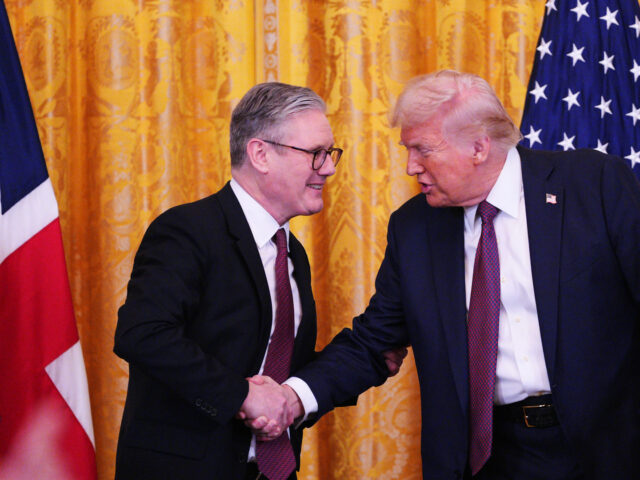Britain Backs Trump’s Strikes on Iran, Europeans Call for Tehran to Return to Negotiating Table

British Prime Minister Sir Keir Starmer appeared the most willing of America’s allies in Europe to align himself with President Donald Trump’s decision to bomb Iranian nuclear sites, while fellow European leaders stressed for calm and a return to talks.
On Saturday evening, President Donald Trump made a surprise announcement that the United States had conducted targetted ariel bombings of three nuclear sites in Iran.
In an address to the nation, President Trump said that the facilities at Fordow, Natanz, and Esfahan had been “completely and totally obliterated.” Trump added that “Iran, the bully of the Middle East, must now make peace.”
The president went on to say that his government had “worked as a team” with the government of Benjamin Netanyahu in Jerusalem. It “We worked as a team, like perhaps no team has ever worked before.”
While British Prime Minister Sir Keir Starmer had previously advocated for continued negotiations, the UK leader nonetheless expressed his backing of the Trump administration’s strikes on Iran.
“Iran’s nuclear programme is a grave threat to international security. Iran can never be allowed to develop a nuclear weapon and the US has taken action to alleviate that threat,” Starmer wrote on Sunday morning.
“The situation in the Middle East remains volatile and stability in the region is a priority. We call on Iran to return to the negotiating table and reach a diplomatic solution to end this crisis,” he added.
European leaders were a bit more cautious in their public statements, appearing less willing to definitively condone America’s strikes on Iran.
European Commission Chief Ursula von der Leyen said: “Iran must never acquire the bomb. With tensions in the Middle East at a new peak, stability must be the priority.
“And respect for international law is critical. Now is the moment for Iran to engage in a credible diplomatic solution.The negotiating table is the only place to end this crisis.”
The EU’s top diplomat, former Estonian PM Kaja Kallas expressed similar sentiments, writing on X: “Iran must not be allowed to develop a nuclear weapon, as it would be a threat to international security.
“I urge all sides to step back, return to the negotiating table and prevent further escalation. EU Foreign Ministers will discuss the situation tomorrow.”
France, which has openly advocated against strikes on Iran, said that it “neither participated in these strikes nor in their planning.” Foreign Minister Jean-Noël Barrot expressed “concern” over the strikes and urged “the parties to exercise restraint to avoid any escalation likely to lead to an extension of the conflict.”
“France has repeatedly expressed its very firm opposition to Iran acquiring nuclear weapons. France is convinced that a lasting resolution to this issue requires a negotiated solution within the framework of the Nuclear Non-Proliferation Treaty. It remains ready to contribute to this in conjunction with its partners,” Barrot added.
It comes amid growing concern over potential terror attacks across Europe, which had already been discussed with the outbreak of war between Israel and Iran earlier this month.
Commenting on the possibility, British cabinet minister Jonathan Reynolds said on Sunday that Iranian operations in the UK were “already at a significant level” particularly cyber attacks on British infrastructure.
“I think it would be naive to say that wouldn’t potentially increase but again, there’s a choice here for Iran. Do they want to continue being an agent of instability in the region and the wider world? Where has that got them? Where has it got the Iranian people?” Reynolds questioned.
Last month, British police unveiled an alleged terror plot on the Israeli embassy in London, which included suspects from Iran.